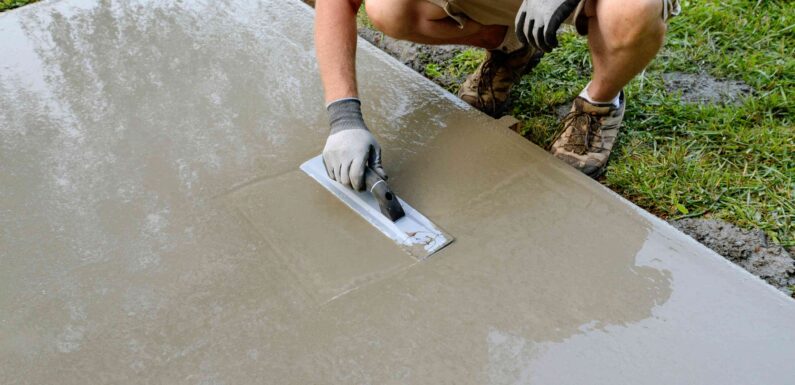
Concrete floor slabs typically consist of concrete mixed with steel reinforcement to increase both their tensile strength and tolerance of tensile strain. When dry, this protection also shields them from moisture intrusion or chemicals that might corrode their steel reinforcement, helping keep their strength at its maximum level.
Cost-Effective
Warehouse floors typically feature concrete reinforced with steel reinforcement to increase its strength, making it more durable and cost-effective than materials such as wood or vinyl flooring. Furthermore, concrete stands up well against high loads and temperature changes typical in commercial warehouse operations.
Reinforced concrete floor slabs are created by pouring concrete over pre-laid steel rods or mesh, then allowing it to set. Adding steel gives concrete an increased tensile strength that makes it more resistant to lengthwise pressure.
Reduce stress in concrete by increasing flexural and compressive strength for faster construction and to ensure your warehouse floor can bear the weight of equipment, inventory, and other loads without cracking or becoming uneven. Uneven floors pose health and safety risks to warehouse employees because they increase trip hazards such as trips or falls; additionally they damage equipment by wearing out tires quickly or compromise forklift stability.
Reinforced concrete house slabs Melbourne floors are an increasingly popular choice in commercial and industrial settings, thanks to their superior tensile and compressive strength that allows them to withstand immense pressure, heavy traffic loads, as well as years of wear and tear.
Durable
Concrete is an extremely hardwearing material that’s resistant to heat, making it the ideal material for warehouse floors. Withstanding heavy foot traffic while remaining easy to maintain and cleaning up easily – both key factors when it comes to cutting maintenance costs – concrete also resists corrosion which is common among many flooring materials.
Reinforced concrete is formed by pouring raw concrete onto steel rods or mesh that has been laid prior to pouring the raw concrete itself. This helps strengthen and make more resilient to pressure than traditional concrete, as well as bear heavier loads more reliably.
Steel reinforcement in Brisbane is far cheaper than other materials. Combining cement, rock fragments, sand fragments, water, and steel combines to form this cost-effective floor material.
Cracks in a warehouse floor can collect dirt, dust, and moisture that leads to mold and mildew growth, creating hazardous working environments for warehouse employees as well as health issues for them. Reinforced concrete flooring solutions offer long-term use with its smooth surface enabling workers to easily sweep or mop it.
Easy to Install
Concrete is created by mixing Portland cement with aggregates such as rock, gravel and sand to form a paste that sets and hardens, becoming a strong yet resilient material that can support heavy loads. Reinforced concrete combines regular concrete with steel rods or mesh reinforcement to increase its tensile strength – this makes reinforced floors less likely to bend or break than their regular counterparts.
Reinforced concrete flooring installation is also simple. Construction can be completed quickly and efficiently on-site, while it’s possible to precast the concrete prior to its use – saving both time and money, while guaranteeing it will meet installation specifications correctly.
Uneven warehouse flooring can damage machinery & products, leading to downtime and lost productivity. By opting for reinforced concrete floors instead, your warehouse can run more smoothly and efficiently while staying safe – be sure to have a qualified engineer design your floors before commencing construction, so they are capable of withstanding both live and dead loads.
Versatile
Concrete floors are highly versatile and can be applied in various situations, including supporting load-bearing floors, providing fire resistance and increasing structural performance, protecting a building against moisture infiltration and corrosion and helping support floor loads.
This type of flooring consists of a composite slab made up of steel shear studs welded to sheets of profiled composite metal decking (or rolled form decking). Concrete is then poured over this surface, producing a stronger and more durable floor than just its base alone.
Regular concrete has a relatively low tensile strength, meaning it doesn’t withstand lengthwise pressure well. By adding reinforcing bars or mesh to the mix, strength of the floor increases significantly and steel and concrete react similarly to temperature fluctuations; meaning they won’t crack over time and weaken. This feature is especially important in facilities subject to heavy loads.

